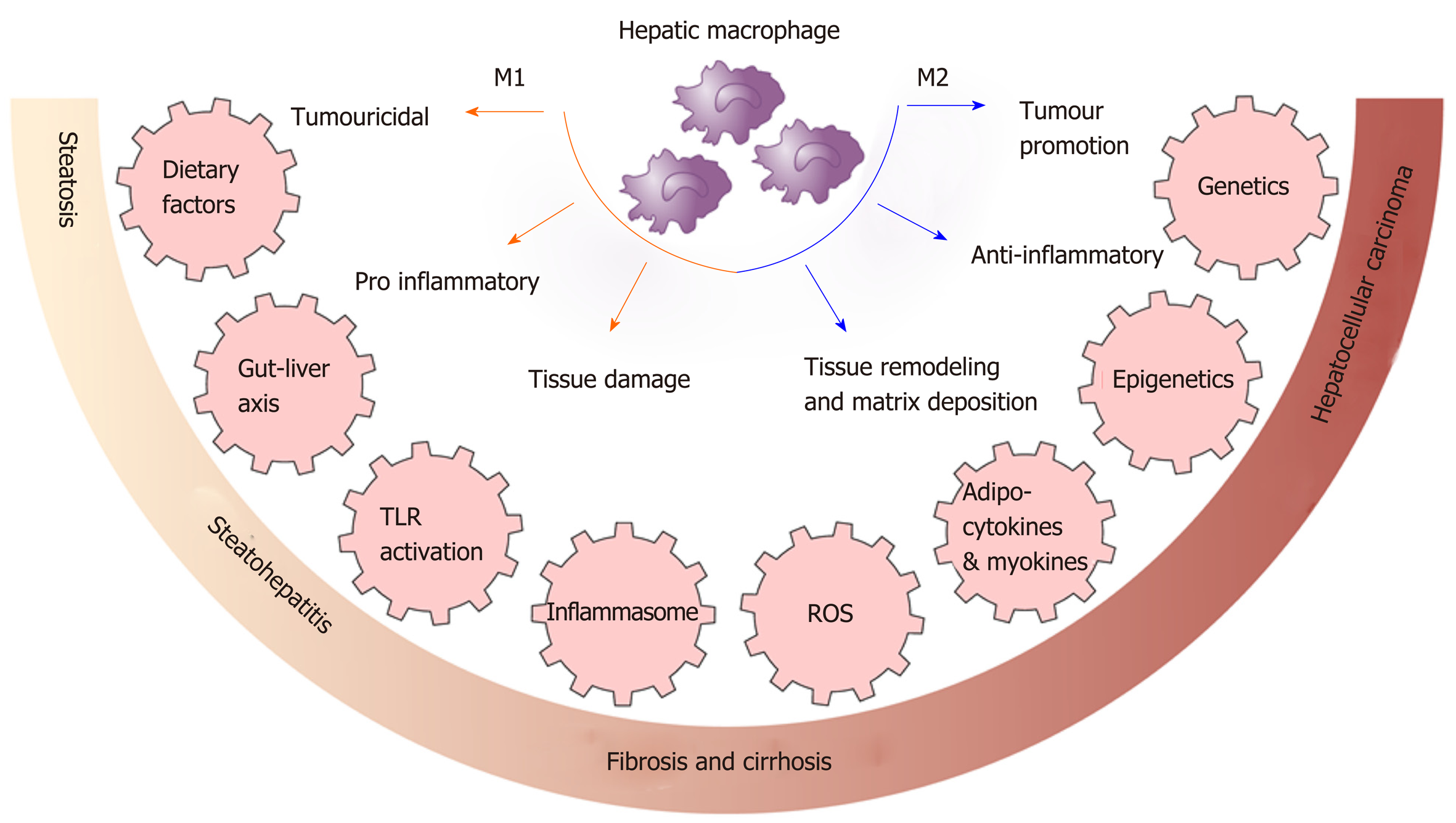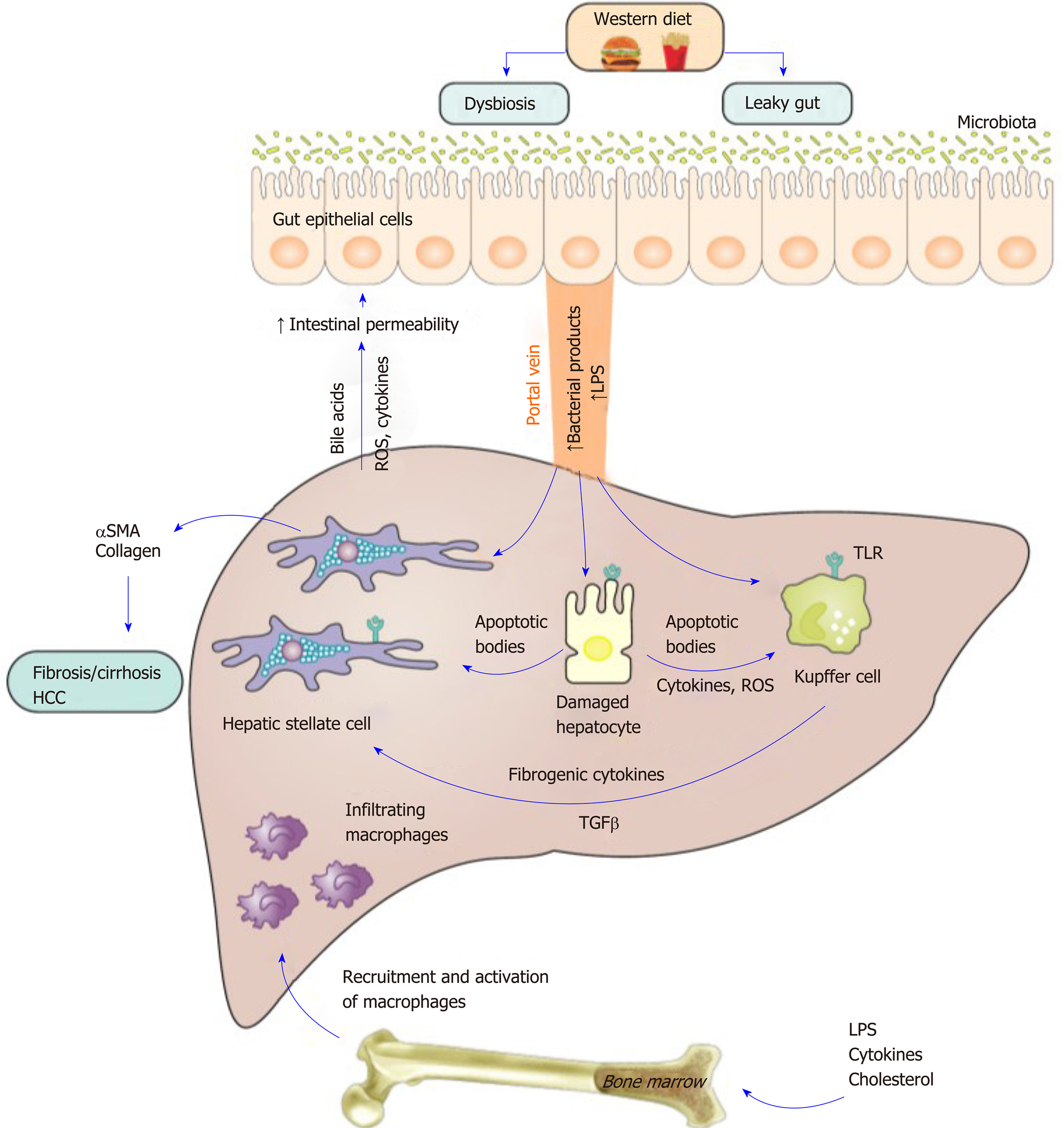©The Author(s) 2020.
World J Gastroenterol. Apr 28, 2020; 26(16): 1861-1878
Published online Apr 28, 2020. doi: 10.3748/wjg.v26.i16.1861
Published online Apr 28, 2020. doi: 10.3748/wjg.v26.i16.1861
Figure 1 Macrophage polarisation and activation.
Macrophages polarize to sub-phenotypes with specific biological functions in response to signals from their microenvironment. These include signals from adipocytokines and myokines, the gut liver axis and toll-like receptor activation, damaged hepatocytes, reactive oxygen species, genetic and epigenetic factors. The process of macrophage activation is a critical determinant of disease progression and is a target for potential treatment. ROS: Reactive oxygen species; TLR: Toll-like receptor.
Figure 2 The gut liver axis in metabolic associated fatty liver disease and the central role of macrophages.
A western diet alters gut permeability and causes dysbioisis. This increases hepatic exposure to lipopolysaccharide and bacterial products and leads to toll-like receptor activation in hepatocytes, hepatic stellate cells and macrophages; the latter are the main responsive cells. Hepatocyte injury leads to the generation of apoptotic bodies, reactive oxygen species and cytokines. Engulfment of apoptotic bodies by macrophages increases expression of death ligands such as tumor-necrosis-factor-related apoptosis-inducing ligand, Fas, and tumour necrosis factor-α leading to a feed-forward loop that promotes further hepatocyte apoptosis. Engulfment of apoptotic bodies by hepatic stellate cells promotes their activation and the secretion of transforming growth factor β1 and extracellular matrix, promoting fibrosis and subsequently cirrhosis. Activated macrophages also lead to increased activation of stellate cells. Cholesterol, bacterial products and cytokines can stimulate myelopoiesis in bone marrow. Infiltrating monocytes lead to amplification of the inflammatory response. Increased bile acid and reactive oxygen species production by the injured liver also contributes to damage to gut epithelial cells and to detrimental alterations in microbiota setting up a vicious cycle of injury. LPS: Lipopolysaccharide; TLR: Toll-like receptor; TGF-β: Transforming growth factor β; HCC: Hepatocellular carcinoma.
- Citation: Alharthi J, Latchoumanin O, George J, Eslam M. Macrophages in metabolic associated fatty liver disease. World J Gastroenterol 2020; 26(16): 1861-1878
- URL: https://www.wjgnet.com/1007-9327/full/v26/i16/1861.htm
- DOI: https://dx.doi.org/10.3748/wjg.v26.i16.1861














